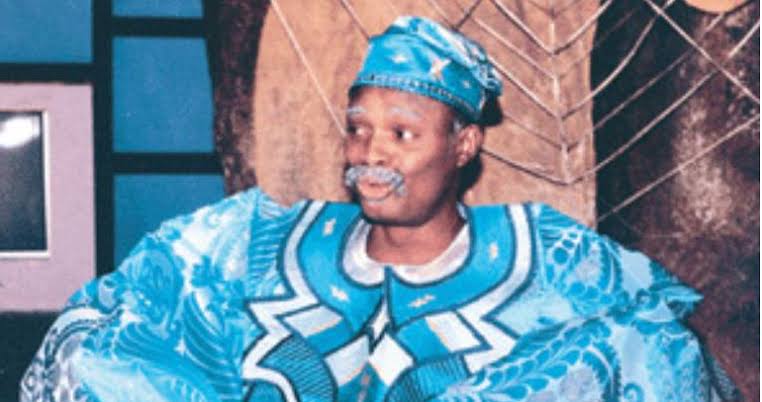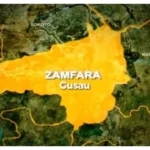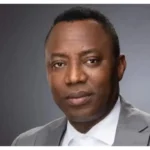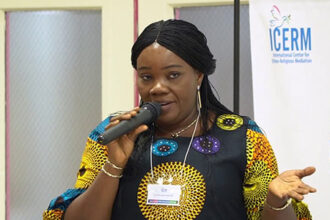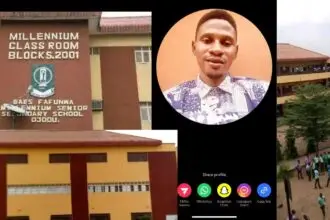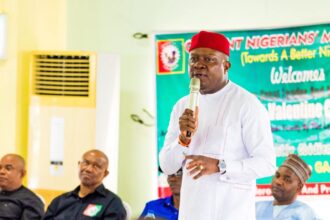The air was always thick with anticipation whenever Kola Olawuyi’s voice crackled over the radio waves or television screens. For Nigerians in the 1990s and early 2000s, Nkan Nbe—translated roughly as “Strange Things Are Happening”—was not just another program; it was a portal into a world that was at once familiar and disturbingly foreign.
Every week, viewers and listeners were invited to question the ordinary, to confront mysteries lurking behind everyday life, and to peer into the uncomfortable spaces where faith, superstition, and human ambition collided. Kola Olawuyi, the fearless journalist behind the show, became a household name by refusing to shy away from stories that others feared to touch.
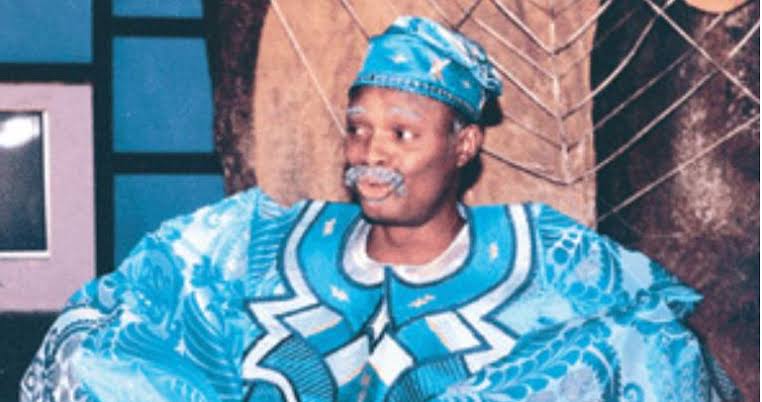
Olawuyi’s approach was immersive. His reporting did not merely recount events; it recreated them with cinematic detail, gave voice to witnesses, victims, and sometimes perpetrators themselves. He approached each episode with meticulous research, extensive interviews, and an insistence on fact over speculation. This made Nkan Nbe an unusual hybrid—a program that combined investigative journalism, human-interest storytelling, and the eerie allure of the unexplained.
The Early Life of Kola Olawuyi
Kola Olawuyi was born in 1964 in Lagos State, Nigeria, to a middle-class family that valued education and intellectual curiosity. From an early age, he displayed a fascination with stories—both the ordinary and the inexplicable. His childhood was marked by evenings spent listening to radio dramas, local folklore, and news broadcasts that dissected crime, politics, and social issues. This formative experience would shape his journalistic style: deeply narrative, morally engaged, and unafraid to confront the uncomfortable.
After completing his degree in Mass Communication at the University of Lagos, Olawuyi began his career at the Federal Radio Corporation of Nigeria (FRCN). There, he quickly earned a reputation for rigorous investigation and a relentless pursuit of truth, even when it meant challenging powerful figures.
The Birth of Nkan Nbe
Before Nkan Nbe, Olawuyi cut his teeth in radio journalism. In 1992, he launched Ìrírí Ayé (“Life’s Experience”) on FRCN. The program was a precursor to the style that would define Nkan Nbe: fact-based, narrative-driven, and fearless in confronting uncomfortable truths. Stories ranged from supernatural claims to human exploitation, but all were grounded in verifiable accounts. Despite its popularity, resistance from some quarters within FRCN led to its discontinuation.
Undeterred, Olawuyi founded Kolbim Communications and launched Nkan Nbe on Ogun State Broadcasting Corporation (OGBC), later extending to private platforms including Galaxy Television in Lagos. The program quickly gained traction because of its unique blend of investigative depth, human-centered storytelling, and ethical inquiry into phenomena often dismissed as mere superstition or rumor.
The Anatomy of Nkan Nbe Episodes
Nkan Nbe episodes typically followed a meticulous investigative template:
Immersive scene-setting: Each episode opened with vivid imagery, placing the audience in the heart of the story.
Eyewitness testimonies: Victims, community members, and even alleged perpetrators were interviewed, providing firsthand perspectives.
Fact-checking and verification: Olawuyi combined local intelligence, police reports, and historical records to corroborate claims.
Analytical commentary: Episodes were framed to encourage viewers to critically evaluate social, psychological, and moral dimensions.
The following episodes represent some of the most compelling, verified investigations Olawuyi undertook during the program’s run.

Episodes That Shook Nigeria
Episode 1: The Prophet and the Deceived
In one of the earliest episodes, Olawuyi explored the case of a 31-year-old prophet named Kakaki, who manipulated a 50-year-old woman into leaving her home and living under his control for two years. Through patient interviews with family members, friends, and religious experts, Olawuyi documented the psychological coercion and spiritual manipulation involved. The episode revealed how charismatic authority can be weaponized, prompting national debates on the ethical boundaries of religious leadership.
Key insights:
- The episode highlighted the vulnerability of devout followers to psychological manipulation.
- It prompted calls for regulatory oversight within spiritual communities.
Episode 2: The alleged Ghost Town in Benin Republic
Olawuyi traveled to a village rumored to be abandoned and haunted. Locals spoke of strange lights, eerie sounds, and unexplained disappearances. Undercover interviews with former cult members revealed ritualistic practices, illegal activities, and the social systems that perpetuated fear.
Analysis:
- The episode demonstrated the intersection of superstition and organized criminality.
- It emphasized how fear can be both a cultural and psychological control mechanism.
Episode 3: The Woman Who Claimed to Be God
This controversial episode examined a woman asserting herself as a divine incarnation. Olawuyi combined community interviews and psychological assessment reports to reveal the social and cultural factors driving such claims.
Implications:
- Showcased how individuals exploit spiritual beliefs for authority.
- Sparked national reflection on the limits of spiritual credulity and societal responsibility.
Episode 4: Reverend King and the Murder Trial
In covering the trial of Reverend King, a pastor convicted of murder, Olawuyi investigated both the legal proceedings and the societal context. He interviewed victims’ families, courtroom witnesses, and law enforcement officers, providing a panoramic view of the crime, investigation, and trial.
Key points:
- Highlighted the tension between religious authority and accountability.
- Showed the moral complexity in communities where pastors wield significant social influence.
Episode 5: The Cult of the Ghost Town
Building on the Benin Republic investigation, Olawuyi delved into the workings of secret societies in abandoned towns. Former members disclosed initiation rites, ritual sacrifices, and psychological conditioning.
Significance:
- Illustrated how secrecy and fear perpetuate control.
- Provided rare firsthand accounts from insiders of clandestine operations.
Episode 6: The Money-for-Death Syndicate
Perhaps one of the most daring investigations, Olawuyi exposed a network involved in ritual killings for financial gain. Collaborating with ex-members and undercover sources, the team traced operations across several Nigerian states.
Impact:
- Raised public awareness about organized crime intertwined with ritual practices.
- Provoked government interest in stronger law enforcement action.
Episode 7: The Ogun State Cult
Investigating a cult in Ogun State, Olawuyi examined recruitment methods, indoctrination, and coercion. Former members described intense psychological pressure, social isolation, and threats against defectors.
Lessons:
- Demonstrated how vulnerability can be exploited for organized crime.
- Reinforced the importance of community vigilance and preventive intervention.
Episode 8: The Spiritual Healer Exploiting the Vulnerable
Olawuyi documented a self-proclaimed healer who preyed on emotional distress, collecting money and coercing sexual favors. Interviews with victims highlighted emotional manipulation and systemic exploitation.
Broader implications:
- Triggered public discourse on the need for ethical regulation of spiritual practitioners.
- Provided a cautionary tale about the intersection of faith and fraud.
Episode 9: Witchcraft Trials in Southern Nigeria
Investigating the resurgence of witchcraft accusations, Olawuyi explored mob justice, human rights violations, and the underlying social anxieties driving these beliefs. Interviews with victims, families, and local authorities painted a nuanced portrait of social dynamics fueling superstition-driven violence.
Takeaways:
- Exposed systemic neglect of vulnerable individuals accused of witchcraft.
- Sparked conversations on integrating cultural understanding with legal protection.
Episode 10: Rituals Among the Political Elite
Olawuyi examined claims of ritual practices among political figures. Using anonymous sources, whistleblower accounts, and historical patterns, he traced allegations of occult involvement in power consolidation.
Impact:
- Stimulated media and civil society discourse on transparency and accountability.
- Highlighted challenges in verifying secretive networks without compromising evidence integrity.
Episode 11: The Cult of Wealth in Lagos
This episode highlighted a secretive group targeting young professionals with promises of rapid wealth accumulation. Former members detailed coercive initiation rituals and illegal activities.
Significance:
- Showcased the entanglement of ambition, moral compromise, and clandestine networks.
- Prompted debates on financial literacy and ethical decision-making among youths.
Episode 12: The Kidnapping Syndicate
Nkan Nbe traced a syndicate responsible for kidnappings across southwestern Nigeria. Survivor accounts revealed intricate networks of bribery, intimidation, and operational secrecy.
Key observations:
- Exposed the systemic vulnerabilities exploited by criminal organizations.
- Highlighted the need for proactive law enforcement collaboration.
Episode 13: The Enigmatic Disappearances in Ondo State
Olawuyi investigated unexplained disappearances, piecing together police records, family accounts, and eyewitness testimonies.
Analytical points:
- Reinforced the importance of investigative journalism in filling gaps left by law enforcement.
- Illustrated the human toll of unsolved cases on families and communities.
Episode 14: The Human Sacrifice Allegations in Kwara
Allegations of human sacrifice tied to business and political interests in Kwara State were investigated with corroborated witness statements and historical research.
Implications:
- Connected contemporary claims to longstanding cultural taboos.
- Raised ethical, social, and legal questions about ritualized violence.
Episode 15: The Fraudulent Prophet in Ibadan
Olawuyi dissected the operations of a prophet exploiting congregants for financial gain, presenting a detailed account of deceit, manipulation, and eventual exposure.
Insights:
- Reinforced the protective role of investigative journalism in religious contexts.
- Served as a model for fact-based, ethical reporting.
Episode 16: The T.B. Joshua Exposé
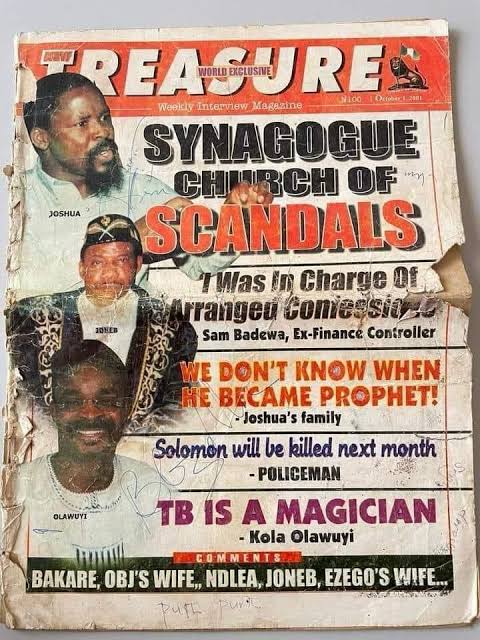
One of Nkan Nbe’s most discussed episodes focused on Prophet T.B. Joshua and his church, The Synagogue Church of All Nations (SCOAN). Olawuyi call T.B Joshua a magician, investigated alleged occult practices, gathered testimonies from former staff and insiders. The report explored claims that spiritual authority was being used to manipulate followers for financial gain.
Highlights of the investigation:
- Revealed the complex hierarchy within SCOAN and the influence of spiritual leaders over congregants.
- Examined claims of secretive practices behind the public ministry.
- Led to significant tension between Olawuyi and T.B. Joshua, with attempts to halt the broadcast, illustrating the risks Olawuyi faced in pursuing investigative truth.
This episode demonstrated Olawuyi’s commitment to fact-based reporting, even when confronting highly influential religious figures, and reinforced the broader discourse on accountability within Nigerian spiritual institutions.
Analytical Reflections
Several recurring themes emerge from Olawuyi’s work on Nkan Nbe:
Intersection of Faith and Power: Many episodes highlighted how spiritual authority can be exploited, creating moral and psychological vulnerabilities.
Cultural and Social Dynamics: Episodes often revealed deeper societal anxieties—fear of the unknown, social hierarchies, and communal pressures.
Systemic Failures: Across cases, insufficient law enforcement, lack of oversight, and societal complicity allowed exploitative practices to persist.
Investigative Rigor as Moral Imperative: Olawuyi consistently demonstrated that storytelling, when grounded in fact and context, can illuminate hidden truths and inspire accountability.
Kola Olawuyi’s Enduring Legacy
Kola Olawuyi passed away in 2007, leaving a void in Nigerian investigative journalism. Speculation about his death included theories tied to the powerful individuals and groups he exposed, though none were confirmed. What remains indisputable, however, is his profound impact: a model for fearless reporting, blended narrative depth, emotional resonance, and fact-based investigation.

Nkan Nbe continues to be referenced as a benchmark in Nigerian media. Olawuyi’s immersive, meticulous, and morally courageous method set a standard for how journalists can illuminate dark truths while respecting human complexity.
Closing Thoughts
Revisiting Nkan Nbe is more than an exercise in nostalgia. It is a tribute to a journalist who challenged society to confront its fears, hypocrisies, and moral blind spots. Each episode—from prophets exploiting the faithful to ghost towns harboring secret cults—reflects layered realities of Nigerian society: complex, mysterious, and often uncomfortable.
Through his investigative rigor, Olawuyi created a legacy that persists: a call to question, to investigate, and to uncover truths hidden beneath the ordinary. Nkan Nbe was not just a program; it was a mirror reflecting the strange, unsettling, and profound realities of a society learning to confront itself.

